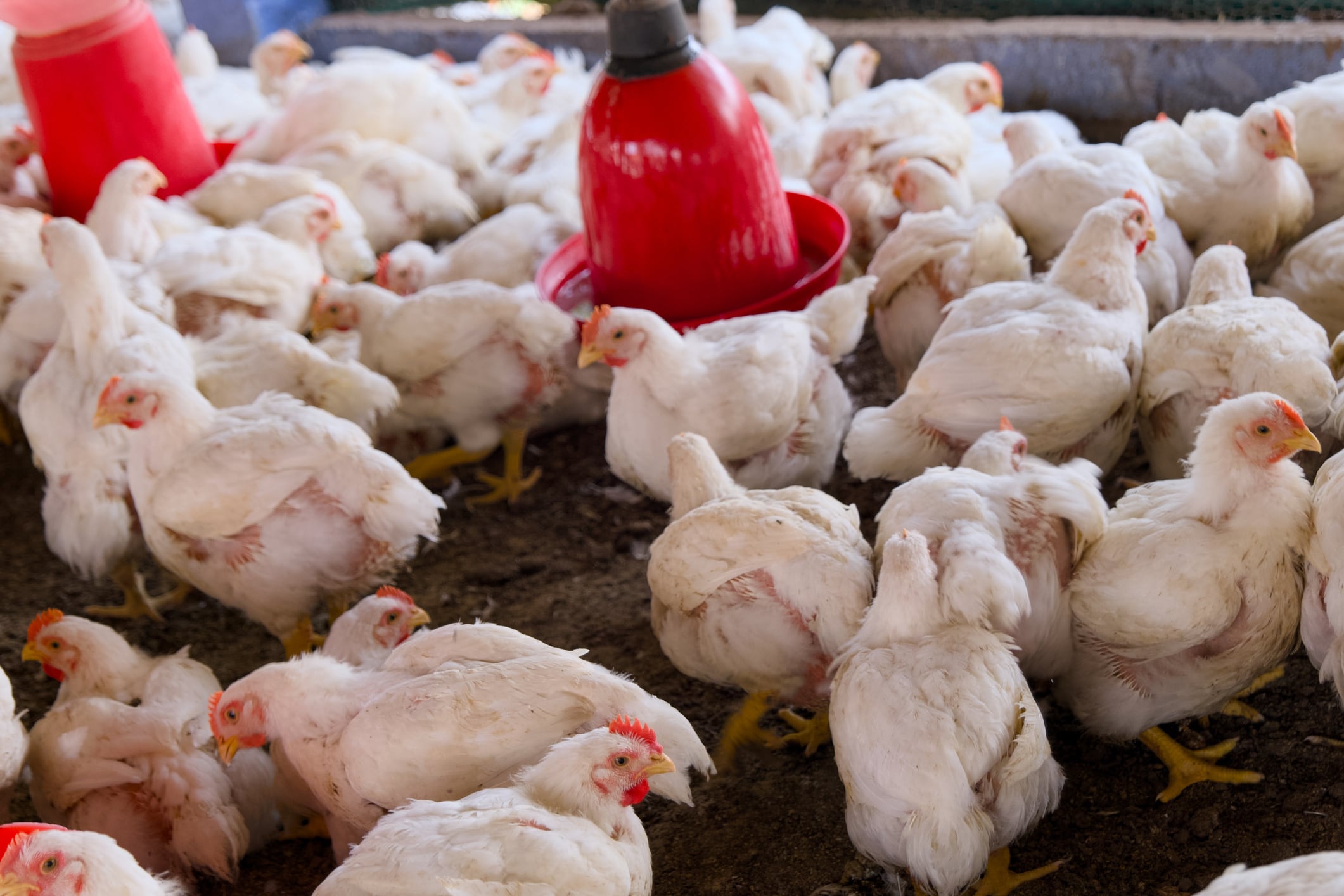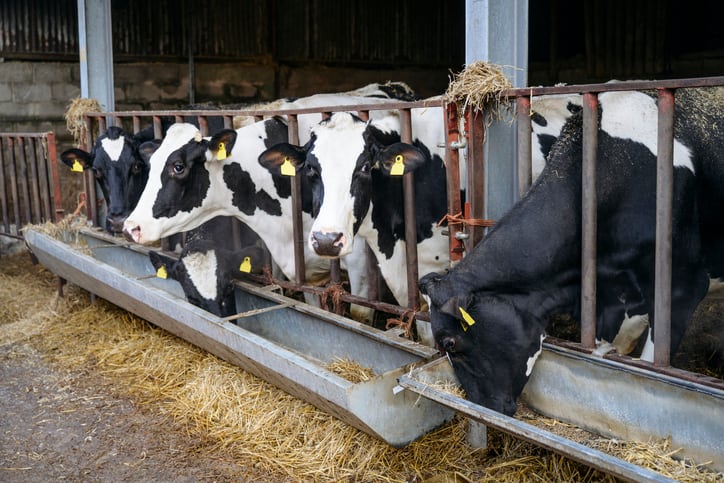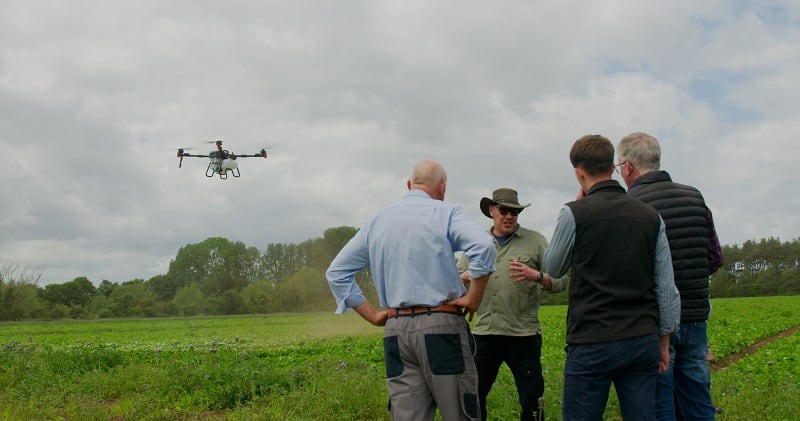UK supermarkets, Marks & Spencer (M&S) and Waitrose, recently launched initiatives to accelerate the transition to low-carbon farming.
M&S is managing a pioneering biochar trial in its poultry supply chain, aimed at cutting ammonia emissions, improving bird welfare, and enhancing soil health.
The pilot is being delivered in partnership with Avara Foods, one of the UK’s largest poultry producers, and Black Bull Biochar (BBB), with funding from the £1m (US$1.15m) M&S Plan A Accelerator.
Running until spring 2026, the initiative will trial the use of high-quality biochar mixed into poultry bedding. This ‘ChickenChar’ approach is designed to lower ammonia levels in sheds, keeping litter drier and improving housing conditions, which in turn is intended to support better bird health and productivity. The resulting manure, enriched with biochar, is expected to improve nutrient retention and reduce the risk of runoff into waterways.
“Biochar will be mixed into the bedding where the chicks are reared, having a two-fold benefit, initially in the bedding and then again with the resulting manure applied to land,” said Sam Laing, innovation manager, Avara Foods.
The project also integrates Biochar Carbon Removal Credits, which M&S is purchasing through its partnership with BBB. According to the partners, these credits represent permanent carbon storage.
Expanding on that, BBB Co-founder & CTO, Hamish Creber, explained that forests and crops sequester carbon as they grow, but the carbon is re-emitted to the atmosphere when the biomass decomposes or is burned for energy; however, when BBB transforms plant biomass into biochar, the carbon removed from the atmosphere is locked in for the long term, turning agricultural waste into a powerful climate strategy.
Addressing Scope 3 targets
The trial supports M&S’s broader Plan A sustainability strategy, with the retailer having updated its climate goals to align with the latest Science Based Targets initiative (SBTi) guidance, now covering both FLAG and non-FLAG emissions.
The Scope 3 base year has been revised to 2022/23 for better data accuracy, explained the supermarket chain. Targets include a 55% cut in Scope 1 & 2 emissions and a 42% cut in Scope 3 emissions by 2030, with long-term goals of 90% reductions by 2035/2040.
Forest, Land and Agriculture (FLAG)-specific targets include a 30.3% cut by 2030 and 72% by 2040, alongside a no-deforestation commitment by the end of 2025.
Also part of those objectives are projects focused on livestock and crop-based innovation. Supported by the £1m Fund, these efforts include exploration of selective cattle breeding approaches to lower methane output, and the implementation of methane-reducing strategies in feed management along with trials to develop net zero wheat for use in both animal feed and bakery products.
A spokesperson for M&S told us: “Our ambitious Plan A goal to be a Net Zero business by 2040 is one that we can only do in collaboration with partners and suppliers. The validation of our FLAG aligned updated Science Based Targets is an important milestone in our decarbonisation journey and we will continue to evolve our approach in line with changing policies, practices and technology.”
Building resilience
Meanwhile, June saw Waitrose unveil the recipients of its new £500K (US$575m) net zero farm fund, supporting nine projects aimed at reducing emissions and building resilience across its UK farming base.
Selected from over 2,000 invited farmers and suppliers, the nine successful farms will trial a range of low carbon innovations, including water and fertiliser recycling, establishing wilded habitats alongside traditional farming, testing cover cropping in orchards, and converting waste materials like poultry litter into fertiliser.
Additionally, some farms plan to introduce agroforestry and wildflower planting for better water management, biodiversity, and carbon sequestration, while others are exploring renewable energy and emissions tracking systems.
Tesco call for government support
In January, Tesco announced plans to establish two low-carbon concept farms - one in partnership with potato supplier Branston, and another with livestock processor ABP - to trial innovative farming techniques within its supply chain. They would test low carbon fertilisers, alternative fuels, carbon removal technologies, and innovations in soil health, grazing, biodiversity, and genetic improvements.
The announcement was accompanied by a strong call to action from then-chief commercial officer and now the supermarket chain’s new CEO, Ashwin Prasad, at the Oxford Farming Conference. He urged the UK government to create a national strategy for sustainable agriculture, along with improved funding for sustainable innovation, and clear, consistent environmental standards to guide farmers.
The retailer’s call was backed by a report produced with Harper Adams University, based on a survey of over 300 UK farmers. The findings revealed that 74% of farmers surveyed are concerned about the impact of climate change on their farms and two thirds (67%) are already seeing the effects. Three quarters however (76%) haven’t been able to implement all the environmental measures they want to due to high upfront costs, the risk of poor financial returns and a lack of policy certainty from government.





